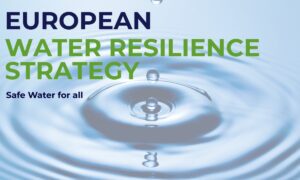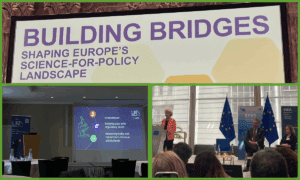
19th Delegate Assembly of the EYCN
From January 28th to 31st, the 19th Delegate Assembly (DA) of the European Young Chemists’ Network (EYCN) was held at the Royal Society of Chemistry’s (RSC) headquarters in London’s bustling heart. Hosted by the RSC, the event took place in the elegant Burlington House, a Palladian-style masterpiece, and brought together representatives from various European chemical societies.
The opening remarks by EuChemS President Angela Agostiano and RSC CEO Helen Pain set the tone for the chemistry conclave, officially inaugurating the gathering. Claudia Bonfio, Chair of EYCN, took center stage, vividly illustrating EYCN’s fourfold mission: fostering knowledge exchange, sparking innovative idea-sharing, enhancing chemistry’s visibility, and championing mentorship and early career researchers’ development.
The first day featured Angela Agostiano and Helen Pain introducing the current state of EuChemS and RSC, emphasizing new industry members and a commitment to closer ties with the private sector. Most of the day centered on Science Communication, with presentations from Fernando Gomollón Bel and Jennifer Newton of Agata Agency and ChemistryWorld. Richard Kidd, RSC Head of Chemistry Data, delved into current trends and opportunities in Open Science policy. The first day was capped off with a keynote talk by Prof. Sir Martyn Poliakoff who added a touch of history to the event. Together with a captivating narrative on the periodic table’s development, he also shared insights on the significance of both early career scientists and mid career researchers and technicians.

The second day of the assembly delved into discussions among EYCN Teams, leading to new plans for the next months of the EYCN. Interactive workshops included a presentation on the Reaxys tool by Marta Da Pian and a discussion about accessibility and disability in the chemical sciences by Emrys Travis. Angela Agostiano also led a discussion on unconscious bias, a prevalent issue in the scientific community, also sparking conversations on diversity in chemistry. The assembly concluded with a reflective discussion on the pros, cons, and future directions of the Delegate Assembly. For delegates who had planned an extended stay in London, the RSC arranged a brief workshop around a crucial aspect of early career development — the correct approach to crafting a CV.
Throughout the DA, team leaders presented ongoing projects showcasing the diversity of EYCN’s initiatives. Highlights included “Chemistry across Europe”, an interactive map promoting international mobility; “Eurospectives”, a visual journey through European perspectives; “Chemistry Rediscovered”, a competition echoing innovation; and “What can I be with a PhD?”, a webinar series exploring possibilities for early-career chemists. The assembly also witnessed the pitching of new ideas, such as the exploration of new social media platforms for science communication, potential involvement in the ReMO Cost Action, partnerships with mental health initiatives like DragonFly, and the further development of video-based interviews with the Delegates.

In the grand tapestry of the 19th Delegate Assembly, chemistry emerged not merely as a subject but as a vibrant, living entity — a community of diverse minds united by a shared passion. The event showcased a symphony of ideas and initiatives that promises to shape the future of this dynamic scientific field. As the curtain falls on the assembly, the stage is set for the EYCN to propel chemistry into an exciting and innovative future.


